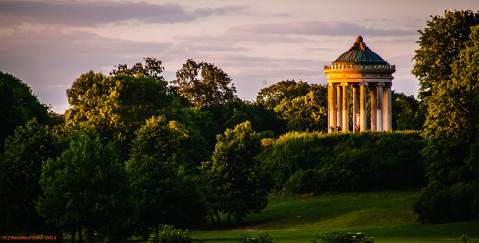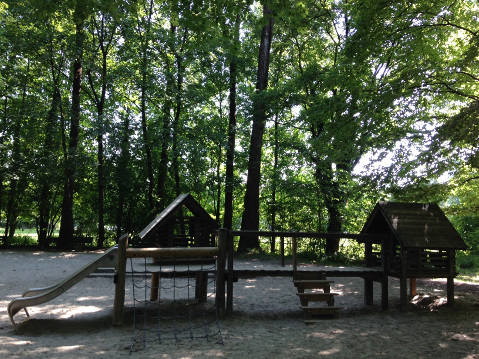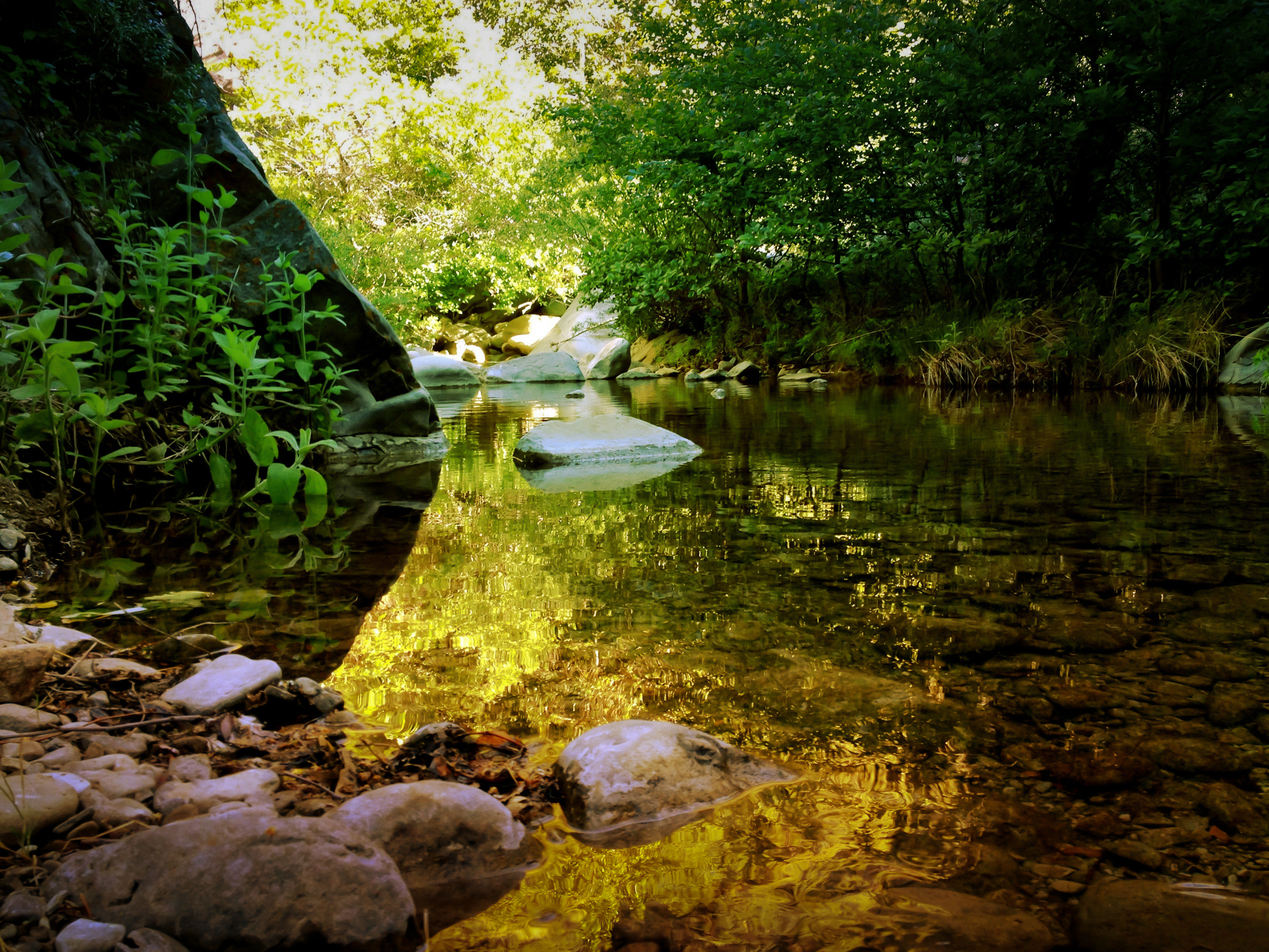Letter from Munich
American Landscape and Wilderness ‘Exceptionalism’?

Having lived in Munich, Germany, and with close family relatives still there, I visit often and have come to love this exceptionally “green” Bavarian city of 1.3 million (over four times the size of the greater Santa Barbara area). Munich supplies a stimulating comparison to life in our much smaller U.S. city, with our very close access to actual wilderness and near-wilderness areas. Bavarians here have an amazing daily access to several green belts in the form of enormous public parks scattered throughout the ubiquitous high-rise apartments in which most inhabitants dwell (very few have cars). Among them is the queen of parklands, the 900-acre English Garden near the city center and encompassing the mighty Isar River.

Apartment-bound Muenchners also enjoy the myriad pocket parks, which are ideal for parents of young children. Since close connections to green spaces also afford the chance for outdoor exercise, Munich beggars Santa Barbara in its complex system of 1,200 kilometers of biking lanes; 17 percent of all Munich traffic is by bike. I observe all kinds of people cycling here, from older matrons in their nice dresses to scads of parents with their young kids in tow. Munich styles itself a Radlhauptstad (Bicycle Capital).
After living in Santa Barbara for over 40 years and developing a connection — okay, obsession — to our glorious nearby backcountry wildernesses, from the Munich viewpoint, I can see there are unique advantages to our hybrid lifestyle here in the western U.S.A. Noted California historian Jared Farmer’s key point in Trees in Paradise is the unique juxtaposition of heavy urban concentrations right next to wilderness zones. While we are dependent on our autos for getting to jobs, stores, the beach, and schools, this form of transportation can also carry us swiftly to adjacent backcountry trailheads — examples are Upper Oso near Red Rock, Nira Camp, and the Matilija Wilderness (near Ojai), all in less than 90 minutes. There we engage with genuine wilderness, and these transformative experiences are crucial for us, and particularly for children. Wild nature presents an ideal place for mindfulness practice and quiet introspection. Almost every one of my 42 Hiking the Backcountry columns includes appropriate ages for the hikes for taking kids “out there.”

When waxing eloquent — or tedious — to my German friends, extolling the enchanting possibilities and proximity of wildeor for Santa Barbarans, I get a very cool reception. They quickly respond, “Look at how completely ‘green’ our cities are, especially Berlin and Munich!” And more fundamentally, “Isn’t this simply another form of your parochial and hubristic ‘American Exceptionalism’ now in a landscape variation?” Ouch.
One of the beauties of travelling is facing the exhilarating cognitive dissonance and intellectual challenge that questions like these pose. I actually consider backpacks into our local wildernesses another form of “travel” and practically as stimulating as foreign travel.
Germans also hammer me with “Ach, you’re our supposed allies in NATO yet the CIA/NSA spies on us, and even taps our Chancellor Merkel’s personal phone. What arrogance!” They are correct, of course, about the NSA, and it means nothing to them when I meekly counter with “Hell, they spy on us all the time, too!”
It’s tough to disentangle these issues, and impossible in a short column like this. However, dwelling as I do on Santa Barbara’s densely populated Westside, with only Bohnett Park as a nearby green space to take our many children, the car access to adjacent wild nature is more essential — the Upper Oso trailhead is just 30 minutes away. Take yourself and your children out there!

These compelling über-green wilderness zones are rare and simply not available to 99 percent of our German allies. When Bavarian friends protest, “Well, we have wild nature, too,” I have to covertly chuckle. Let’s imagine a beautiful, natural spot near a fantastic lake, say the famous Koenigsee in the Bavarian Alps. I’ve hiked there and waited in the huge lines to ride on the cool electric boats — and, say, one locates a sylvan spot near the lake amid tall conifers and then begins to commune with nature and … oops, here come 25 day hikers; just over the next rise stands a rustic Gasthaus where you can quaff the best beer in the world and munch on sausage and cheese. With your iPhone you connect with family back in Berlin.
It’s wonderful and a worthy experience — but hardly wild nature. How can I explain this to German friends without summoning up a sort of “Hey, look how exceptional is America!” They respond, “At least our government doesn’t spy on us every day”: beside the point, but angst ridden. How can I clarify to lovely people something they have never known? There are wondrous “diamond mines” beyond their sacred silver mines, so to speak.
American poet Mary Oliver writes, “Poetry is a product of our history, and history is inseparable from the natural world. Now, of course, in the hives and dungeons of the cities, poetry cannot console … [We must] take the first step — away from [our] materially bound and self-interested lives, toward the trees, and the waterfall.” I contend that we need at least a few hours of regular immersion in wilderness to remain mentally and spiritually vibrant, and it’s critical we take our children along. A unique advantage to Santa Barbara living is the extreme closeness of our five federal wilderness tracts (as Trees in Paradise describes).
The Germans are correct that the U.S.A. has a multitude of failings, yet they fail to appreciate our easy access to wild landscape. We have inadequate biking lanes here in S.B., our government attacks foreign lands, we aerially assassinate thousands, the NSA spies on us, our infrastructure is collapsing, and some foolish politicians want to starve government and privatize public schools. At least we can easily drive to the nearby hills with our kids from time to time and temporarily escape this madness.



